Iohannis and Kovesi at the National Council for Combating Discrimination – Read Lumea Justitiei’s petition against President Klaus Iohannis and Laura Kovesi due to using terms such as “penals” and “indictees” when talking about those who spoke against the corruption in the National Anti-Corruption Directorate: “The CNCD jurisprudence for sanctioning someone who creates a hostile, intimidating, and offensive environment for those of homosexual orientation is entirely applicable in this case"
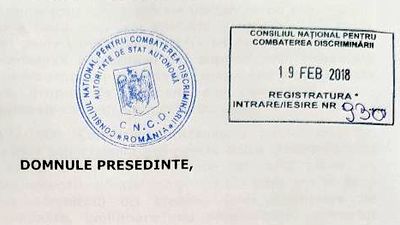 UPDATE: Monday, February 19 2018, at 2 p.m., Lumea Justitiei’s editorial office filed a petition at the registry of the National Council for Combating Discrimination against the President of Romania and the DNA’s Chief Prosecutor, registered with the number 930/19.02.2018 (see photo)
UPDATE: Monday, February 19 2018, at 2 p.m., Lumea Justitiei’s editorial office filed a petition at the registry of the National Council for Combating Discrimination against the President of Romania and the DNA’s Chief Prosecutor, registered with the number 930/19.02.2018 (see photo)
- - - - - - - -
Lumea Justitiei’s editorial office has written a petition against Romania’s President Klaus Werner Ionannis and the DNA’s Chief Prosecutor Laura Codruta Kovesi, and it will be filed on Monday morning at the National Council for Combating Discrimination (CNCD). According to law, if the Council decides that the two have committed an act of discrimination against people who are on trial, through giving them labels that would be considered degrading, they could be sanctioned via written warning or a fine up to 100.000 Lei.
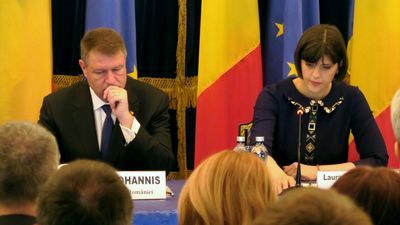
Read below Lumea Justitiei’s petition that will be filed tomorrow at the National Council for Combating Discrimination:
PETITION
Concerning the acts of discrimination, that go under art. 2 and art. 15 of O.G. 137/2000, revised, regarding the prevention and sanctioning of all forms of discrimination, that we claim were committed by:
- Klaus Werner Iohannis – President of Romania;
- Laura Codruta Kovesi – Chief Prosecutor of the National Anti-Corruption Directorate;
about whom we do not hold identifying details, since these are not public information, but who we ask you cite at their workplace – the headquarters of the Presidential Administration and of the National Anti-Corruption Directorate, respectively.
I – Nature of the Acts
According to art. 2 of O.G. 137/2000: “discrimination is defined as any difference, exclusion, restriction or preference, based on race, nationality, ethnicity, first language, religion, social status… as well as any other criteria that is meant or results in limiting, denying recognition, the use or exercising – as equals – of basic human rights and freedoms or of any lawfully acknowledged rights, as reflected in the political, economical, social, and cultural environment, or any other area of public life…
(3) According to this edict, discriminations are provisions, criteria or practices that appear to be neutral but that put at a disadvantage certain people based on criteria mentioned in art. (1), in relation to other people – except when these provisions, criteria or practices are objectively justified by a legitimate purpose and the methods of reaching such purpose are appropriate and necessary. (4) Any active or passive behavior that – through the effects it generates – favors or disfavors in an unjustified manner or submits to an unjust or degrading treatment a person, group of people or community, in relation to another person, group of people or community, attracts the responsibility of contravention according to this edict.”
According to art. 15 of O.G. 137/2000: “A contravention is, according to this edict, as act that does not fall under penal law, any publicly manifested behavior that: is of a chauvinistic nationalist propaganda nature, instigates to racial or national hatred, or any behavior that aims at or attempts to affect human dignity or create an atmosphere of intimidation, hostility, degradation, humiliation or offensive in nature aimed at a person, group of people or a community and related to their race, nationality, ethnicity, religion, social or under-privileged status or their beliefs, gender, or sexual orientation.”
It is our claim that the acts have been perpetrated as direct and indirect discrimination, but also as harassment, defined by art. 2, point (5) of OUG 137/2000 as being: “any behavior that leads to the creation of an environment that is intimidating, hostile, degrading or offensive, based on criteria such as race, nationality, ethnicity, first language, religion, social status, beliefs, gender, sexual orientation, under-privileged status, refugee or asylant status, or any other criteria.”
It is our belief that acts of the two constitute discrimination with the aim to:
- affect human dignity by submitting one to degrading treatments;
- affect the presumption of innocence;
CEDO jurisprudence has established that degrading treatments aim to infringe on human dignity, by affecting the social status, situation or reputation of a person… According to CEDO jurisprudence, a treatment is considered “degrading” if it has caused its victim feelings of fear, agitation, and inferiority, that could humiliate and debase them (see the Kudla vs. Poland case – petition no. 30.210/96, paragraph 92, ECHR 2000-XI);
In order to establish if a certain treatment is or is not degrading in the sense of art. 3 of the Convention, the Court examines if the purpose of administering it is to humiliate or debase the victim and if – through its effects – it has affected one’s personality, in a way that is not compatible with art. 3 (see Ranien vs. Finland case, Edict of 16.12.1997, Reports 1997-VIII, pag. 2.821-22, paragraph 55). Even so, the lack of such a purpose would not definitely exclude the breaking of art. 3 (see the Peers vs. Greece case, Petition no. 28.524/95, paragraph 74, CEDO 2001-III). In fact, in cases when human dignity has been affected through discrimination, the presence of intent or a palpable victim is not relevant.
* * *
II – Describing the Facts
1 – Klaus Werner Iohannis
Press conference at Cotroceni Palace, 02/15/2018:
“Some penals are making a desperate attempt to attack and discredit the DNA and the head of the Directorate. This attempt is pathetic and unconvincing, and you already know my opinion of the DNA’s work, but I like to repeat it. I feel that the DNA and the head of DNA are doing a great job, and this attempt at attacking it made by some penals confirms the fact that the DNA is doing a great job.”
“I don’t feel I should mediate between the DNA and indictees.”
“I’ve explained this penals thing enough times. I won’t go over it again” – refusing to explain to journalists what he understands by “penals”
2 – Laura Codruta Kovesi
Press conference at DNA headquarters, 02/14/2018:
“These indictees that are making false accusations have invoked before the judges claims and exceptions that have been overruled”
“I don’t think that this is a random attack. As of late, we are witnessing a desperate festival of indictees that say things that are untrue or parts of the truth”
“This isn’t about Kovesi, it’s about the attack on justice, the festival of indictees that want to humiliate society, the Romanians”
“I haven’t come out to answer to indictee Vlad Cosma, but to tell you that we don’t forge evidence, to answer to the honest citizens of Romania who wonder if in Romania evidence is handled correctly”
“I answer to the honest people of Romania, who may or may not have faith in the DNA”
“When we see a desperate festival of indictees that attack us, edited recordings, it’s normal to come out and explain things – what we did or did not do”
“If anyone understood that I’ve come to answer to the indictees, they are wrong; I don’t answer to indictees”
“If we take a look at who’s attacking, we see convicted indictees, sent to trial”
“We’re talking about Justice and the attack on Justice…”
“And why this attack? Because certain indictments have been made. Who is attacking? Desperate indictees”
“I reserve the right to make no comment on what indictees have said. I’ve answered to journalists, according to the code of procedure…”
on Sebastian Ghita’s accusations that she’s been at his home: “I won’t comment on the false affirmations of indictees”
Answer given to AGERPRES on 02/06/2018
“There has been no discussion with any DNA prosecutor or the indictee Mihaiela Moraru Iorga about a file regarding any minister that could become Prime Minister. I have never pressured or meddled with any prosecutor’s activity. I won’t comment on the false affirmations of indictees”, Kovesi declared to AGERPRES.
* * *
III – The general and particular context of the acts of discrimination
Klaus Werner Iohannis – President of Romania – and Laura Codruta Kovesi – Chief Prosecutor of the DNA – have made the above-mentioned declarations in the context of numerous exposés, accompanied by undeniable evidence, made recently by various people with high social status (representatives, ex-representatives, prosecutors, businessmen, lawyers, politicians) in regard to the abuse made by DNA prosecutors during investigations.
The strong impact of these exposés, the multitude of irrefutable evidence (audio recordings that showed the suspect and condemnable behavior of certain prosecutors and ex-prosecutors of the DNA) and the wave of penal and disciplinary complaints made by the victims of judiciary procedures to the PICCJ and the Judicial Inspectorate/CSM, the initiative of the Judicial Inspectorate, as well as the wave of social, political, and judiciary system reactions of condemning the practices of some DNA prosecutors, have lead to the reactions of the above-mentioned Klaus Werner Iohannis and Laura Codruta Kovesi.
Faced with unquestionable public contempt from a significant part of society, the two have used in their declarations – attempting to minimize the importance and impact of the exposés, the reactions to them, as well as to direct public contempt at those who have made such exposés – terms like: “penals” or “indictees” that represent verbal abuse – a form of psychological violence that is clear discrimination, extremely dangerous in terms of the effects that it has on those who are going through trial.
The Definition of these terms as explained by the Dictionary of the Romanian Language:
PENAL – “Referring to infractions and the investigation and punishment of criminals / Action in a court of law started against a criminal with the purpose of obtaining their conviction according to law / Sentence as specified in the Penal Code / Of a repressive nature, that deals with crimes and /static the sentences that need to be applied”
One can notice that the term of “penal” attributed to a person/group of people conveys the meaning of a crime committed that needs to be sanctioned, and excludes innocence. As such, using it means a person is guilty and it excludes the presumption of innocence.
INDICTEE – “Person accused of wrong-doing; culprit, accused, defendant / One accused of having committed an infraction, a crime, and so on”
Regarding the “indictee” term, it must be said that according to penal law, it is used during the process in order to define the status of someone who is on trial – the person who is indicted / the accused. So, “indictee” is the one against whom the penal action is taken, and they are called as such until the trial is over. According to law, an indictee can be in one of these trial stages: sent to trial / held in custody / arrested. According to public perception, an indictee is seen as someone who has been handcuffed, has been detained or arrested through a court decision that has declared them a danger to society. In all cases, an indictee is perceived by and large as someone who is in a profoundly negative situation, with unwanted issues, who has committed a serious penal offense.
The two words – penal and indictee – shouldn’t be understood only via their dictionary or legislative definitions, but also as derogatory expressions. According to the Dictionary: Derogatory (about words, expressions, affirmations, and so on) “Detracting from the character or standing of something; disparaging, depreciative”.
According to psychologists, derogatory language is a form of psychological violence and verbal abuse in human relations, a means of keeping control and the power to dominate. For instance, there are a series of regular Romanian expressions and words that are used often with a derogatory meaning and are considered offensive on account of race, ethnicity, gender, sexual orientation, physical or psychological deficiencies: gyppo, kike, crow, redneck, homosexual. As a result of their frequent use with a derogatory meaning, the Romanian Academy has disposed many years ago to eliminate from the Dictionary of the Romanian Language words like “gyppo” and “kike”, considering the fact that they had gained offensive meaning.
As such, when considering public acts of discrimination, the by-the-book definition of a directed word is not the only thing to consider, but also if it is used in a derogatory way. When establishing the derogatory nature of a word one must take into account things like the context in which it was used, the frequency of using it in a speech, intonation, but also rules in effect that establish how a President in office or a magistrate publicly approach matters regarding cases that are being processed by judiciary institutions (in a court of law).
In the case of President Klaus Werner Iohannis, one can notice not just the tone, but also even the “arrogant grin” – as some citizens have called it –, as well as the refusal to explain the “penals” term when asked to by the press; the frequency of use (three times), and the context in which it was used: “some penals are making a desperate attempt to attack and discredit the DNA”…”the attempt to attack it made by some penals”, that has excluded the possibility that the “penals” would be people of good faith that could have a purpose that is supported by the law – that of reporting acts of corruption, even if these are committed by DNA prosecutors and police officers in service of this institution.
The pretext that the President of Romania used: “I don’t feel I should mediate between the DNA and indictees.” is also one where the “indictee” term is used with a derogatory purpose, meaning that he won’t bother to mediate in a situation that has irritated the Romanian society because in this case it’s about “indictees”.
According to art. 80 (2) of the Constitution: “The President of Romania observes that the Constitution is followed and that public authorities function well. To that end, the President exercises the role of mediator between state powers, as well between the state and society”. President Iohannis claiming that he doesn’t feel that he should mediate between public institutions and “indictees” proves the existence of the obvious purpose of submitting the authors of the recent exposés to a degrading treatment, that can affect a person’s social status, situation or reputation. As a result, that person no longer has a name or the presumption of innocence or the protection of being seen as a reporter of sound character, but becomes an “indictee” and is destroyed as an individual.
The President of Romania’s intent and guilt are beyond any reasonable doubt as long as the case pointed out by public exposés against DNA prosecutors is still under disciplinary and penal scrutiny (by the Judiciary Inspectorate and PICCJ), and the President has to be a mediator and not someone who makes pronouncements on matters of justice before the courts have made a pronouncement – pronouncements that exceed his attributions, all the more since the Constitution of Romania states at art. 23 (11): “Until a final verdict of guilt is pronounced by a court of law, a person is considered innocent.”
In the case of DNA’s Chief Prosecutor Laura Codruta Kovesi using the term “indictee” in a derogatory manner is even more obvious (used eleven times, some times in a ridiculing tone) and associated with declarations that exclude any presumption of innocence: “the attack on justice…the festival of indictees that want to humiliate society, the Romanians… If anyone understood that I’ve come to answer to indictees, they are wrong; I don’t answer to indictees… I answer to the honest people of Romania… the indictee Vlad Cosma…the indictee Sebastian Ghita…the indictee Iorga Moraru…If we take a look at who’s attacking we see convicted indictees, sent to trial”…
Since she is a magistrate, Laura Codruta Kovesi should have censored herself and applied the constitutional provisions regarding the presumption of innocence, considering the fact that the complaints against the prosecutors that are her subordinates are being processed by the Judiciary Inspection and the PICCJ (the penal complaints have been published in the press with registration numbers). Although she was legally obligated not to comment on penal and disciplinary cases that are ongoing, DNA’s Chief Prosecutor has not just commented on them and divulged details that were not meant for the media, but has also rejected the idea that the complaints might be well-founded, talking about an “attack” and a “festival of indictees”, using the term of “indictee” also for prosecutor Iorga Moraru about who not long ago she commended on being “the best DNA prosecutor”. So Laura Codruta Kovesi’s obvious desire to submit to certain degrading treatments the group of people who dared to point out potential abuse of some DNA investigators becomes clear. This is also easy to identify through the 365/2004 Law regarding the ratification of the Convention of the United Nations against Corruption, that forces her to offer protection to people who have alerted to acts of corruption.
Art. 33 of the 365/2004 Law – The protection of people who offer information: “Each state aims to incorporate into its juridical system appropriate measures of assuring the protection against any unjustified treatments of any person that notifies the competent authorities, in good conscience and based on reasonable presumptions, of any act regarding the crimes mentioned in this convention.”
Considering this law, to label a group of people – that has pointed out with clear evidence the corruption of some DNA employees – with the “indictee” appellative and to accuse them of “attacking justice” fully proves the fact that instead of giving these people the protection due by law, and waiting for the results of the inquests, she sought to submit them publicly to a humiliating and intimidating treatment in order to discredit and expose them to situations that would create serious concerns, considering the fact that some of these people have ongoing court cases that can be thereby influenced to fault them judicially.
It’s also a relevant discriminatory element that while the people who point out the abuse made by DNA prosecutors become immediately non-credible, they “attack justice” and are labeled “penals” and “indictees”, not getting from authorities the protection they’re due via the 365/2004 Law; most of the penal cases sent to trial by the DNA are based on claims made by indicted, arrested or sentenced people, but these denunciators are given maximum attention, the decisions of sentencing emitted by courts being based on their evidence. But art. 1 point (2) of OUG 137/2000 clearly states that: “The principle of equality between citizens, of excluding privileges and discriminations are guaranteed particularly when exercising the following rights: a) the right to equal treatment when facing courts of law and any jurisdictional institution.”
From other texts that pertain to the matter:
European Union’s Directive 2016/343 of 9.03.2016: “(16) The presumption of innocence would be violated if public statements made by public authorities, or judicial decisions other than those on guilt, referred to a suspect or an accused person as being guilty, for as long as that person has not been proved guilty according to law. Art. 3 – Presumption of innocence: Member States shall ensure that suspects and accused persons are presumed innocent until proved guilty according to law. Art. 4 Public references to guilt (1) Member States shall take the necessary measures to ensure that, for as long as a suspect or an accused person has not been proved guilty according to law, public statements made by public authorities, and judicial decisions, other than those on guilt, do not refer to that person as being guilty...”
EDO Convention – Art. 14: Prohibition of Discrimination: “The enjoyment of the rights and freedoms set forth in this Convention shall be secured without discrimination on any ground such as sex, race, colour, language, religion, political or other opinion, national or social origin, association with a national minority, property, birth or other status.”
EDO Convention – Protocol 12 – Art. 1: “General prohibition of discrimination
(1) The enjoyment of any right set forth by law shall be secured without discrimination on any ground such as sex, race, colour, language, religion, political or other opinion, national or social origin, association with a national minority, property, birth or other status. (2) No one shall be discriminated against by any public authority on any ground such as those mentioned in paragraph 1.”
* * *
Also relevant in the matter is the National Council for Combating Discrimination (CNCD) jurisprudence, through the Resolution no. 400 of 09/09/2015 of the CNCD regarding discriminatory statements aimed at homosexuals:
“5.5. Despite all that, the right to free expression is not an absolute right, and the legislator has established in the constitutional text the limits of exercising the right at free expression, so, according to art. 30, alin. 6 and 7 of the Constitution of Romania ‘Freedom of expression cannot affect the dignity, honor, private life of a person or the right to one’s own image. It’s forbidden by law to defame the country and nation, to suggest war of aggression, national, racial, social status or religious hatred, to incite discrimination, territorial separatism or public violence, as well as obscene manifestations that are contrary to morality.’ Under such circumstances, exercising freedom of expression also /static obligations, and can be subject to conditions, restrictions or sanctions, in so far as these are expressly stated by law and are necessary in a democratic society in order to protect the dignity, reputation or rights of others.
5.6. According to the jurisprudence of the European Court of Human Right, in order to accept an intromission into the right of self-expression, it must be established by law (that in turn must fulfill certain conditions: to be predictable and accessible), to have a legitimate purpose, to be necessary in a democratic society, and to be in proportion with its purpose (Corneliu Barsan, The European Convention of Human Rights, vol. I, Ed. C.H.Beck, Bucharest, 2005, p.769-801).
5.7. Regarding the first criteria, that of existence of a law that would regulate the intromission of the state in the exercising of the right at freedom of expression, it is fulfilled by art. 2 alin. (1) and art. 15 of O.G. 137/2000. Also, in art. 1 alin. (3) the Constitution of Romania states that guaranteeing a person’s dignity is the supreme value of the fundamental law and of democracy. We consider the normative texts in question to be predictable and accessible, although they protect a fundamental value in a democratic society and are notions that also have an abstract nature. The legitimate purpose is that of protecting human dignity of people that have a different sexual orientation.
5.9. On the other hand, considering the right not to be subject of discrimination and regarding this last aspect, related to an unjust, hostile, humiliating or degrading treatment, one must keep in mind the element of appreciating a treatment as reprehensible to hostile, hostile to degrading, such as the European Courts have decided: the former Commission for Human Rights and the European Court of Human Rights. This element of appreciation is variable in nature, depending on the circumstances of the case and its effects, dependant on the gender, age, health of the victim and other such elements regarding the victim’s situation.
5.10. Like the former Commission has stated, the phrase ‘degrading treatments’ refers to grave attacks on human dignity, so that measures that would affect social status, the situation or reputation of a person, can be considered such a treatment if they amount to a ‘certain degree of severity’.
5.11. According to the European Court of Human Rights jurisprudence, a treatment is qualified as degrading if it causes the victim feelings of fear, agitation, and inferiority, meant to humiliate and debase them (see Kudla vs. Poland [MC], Petition no. 30.210/96, paragraph 92, ECHR 2000-XI).
5.12. In order to establish if a treatment is or is not degrading in regard to art. 3. of the Convention, the Court will examine if the purpose of inflicting it is that of humiliating or debasing the victim and if, through its effects, it has harmed their personality in a way that is incompatible with art. 3 (see Raninen vs. Finland, Edict of December 16 1997, Reports 1997-VIII, pag. 2.821-22, paragraph 55). Despite all that, the absence of such a purpose wouldn’t definitively exclude the pronunciation of a breach of art. 3 (see Peers vs. Greece, Petition no. 28.524/95, paragraph 74, CEDO 2001-III). But in cases of affecting human dignity through discrimination the existence of intent or a palpable victim is not necessary (…)
The Council feels that the defendant’s statements constitute behavior that is closely related to sexual orientation, and through their nature they lead to the creation of a hostile, intimidating, and offensive environment that affects particularly a community of people, in this case people of another sexual orientation than heterosexual. As such, the Council feels that the defendant’s statements, via the effect they produced, have affected the right to dignity of homosexual people, as described by art. 2. alin. 5 of O.G. no. 137/2000 revised.”
We feel that the motivation used by CNCD in order to sanction a person who has created a hostile, intimidating, and offensive environment for people of homosexual orientation is fully applicable in this case as well, where a similar effect has been created on people who are on trial in a court of law, as defendants or not.
 A typical example of the negative consequences of these statements on society is the public reaction on Facebook of well-known activist Malin Bot, who wrote the following message that we attach to our petition:
A typical example of the negative consequences of these statements on society is the public reaction on Facebook of well-known activist Malin Bot, who wrote the following message that we attach to our petition:
“I support Laura Codruta Kovesi. Criminals can’t have the right to affect the careers of professionals in the judicial system.”
It’s important to keep in mind that none of those who has publicly reported abuses made by DNA prosecutors have been convicted of a crime, and even if they had been that would have no relevance on the matter; but the way that some citizens perceive things can be as stated and can degenerate into hatred and contempt as a result of discrimination committed by people with important state roles.
It is unacceptable that by accepting and sharing such messages, we end up addressing each other in society as “penal”, “indictee”, “criminal”, “convict”, words that in the civilized world – mainly in the EU – are considered forms of discrimination that could generate reactions of hatred and violence. Even when the concerned parties are people who have been sentenced to jail – which is not the case here – the purpose of a sentence must be that of re-educating, not of attracting public hatred or social exclusion.
In conclusion: We ask that you observe the acts of discrimination pointed out and dispose the sanctions required by law against the President of Romania the Chief Prosecutor of the DNA. Disposing sanctions for such behavior is necessary in a democratic society because protecting the right at human dignity of those under penal scrutiny and respecting the presumption of innocence are essential values guaranteed by the European Convention of Human Rights and Romania’s legislation.
Adauga comentariu
DISCLAIMER
Atentie! Postati pe propria raspundere!
Inainte de a posta, cititi aici regulamentul: Termeni legali si Conditii


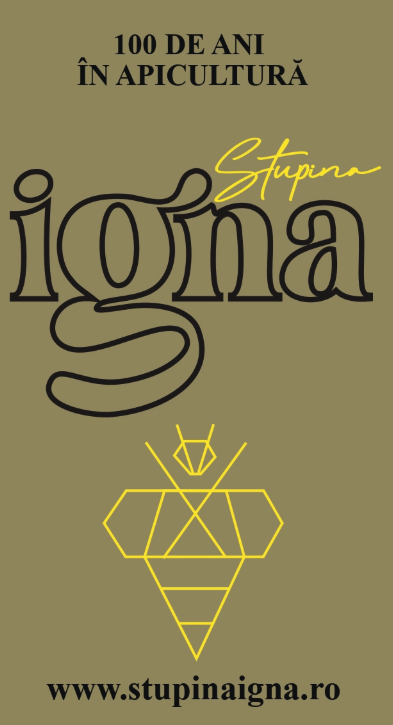





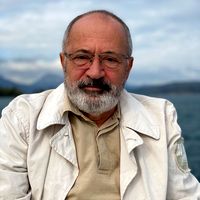
 Puterea necontrolată s-a transformat în monstru
Puterea necontrolată s-a transformat în monstru 

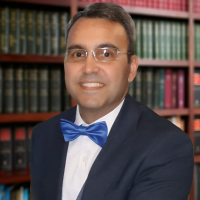






Comentarii
# UNUL DIN LUMEA CEA MARE 26 February 2018 15:19
+5
26 February 2018 15:19
+5
# unul din lumea cea mare 26 February 2018 15:54
+2
26 February 2018 15:54
+2
# gelu 26 February 2018 15:54
+18
26 February 2018 15:54
+18
# A friend 26 February 2018 16:12
+6
26 February 2018 16:12
+6
# cozma ioan 26 February 2018 16:33
0
26 February 2018 16:33
0
# gelu 26 February 2018 17:01
+6
26 February 2018 17:01
+6
# Gerula 26 February 2018 18:23
+3
26 February 2018 18:23
+3